日本大阪 - Atelier-Bisque Doll/UID-Keisuke Maeda
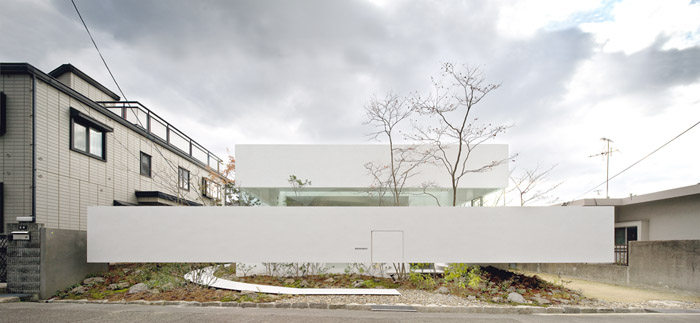
这是为一对从事娃娃艺术的夫妇所设计的工作室和住宅。工作室不光要能进行工作会
议,还要如同画廊般展示娃娃艺术品。这里应该是一个可以和朋友聚会的愉快空间。
工作室和住宅都需要具有开放感,同时拥有恰当的隐私。
建筑师在春天到达这里的时候,感受到这个城市的葱郁,在大阪府箕面市,城市地区
绿化覆盖率达到40%以上。
既然要营造一个开放也保护隐私的建筑,外围建造围墙和栅栏是不可取的。建筑师设
置了两条漂浮的墙带(住宅外围一条,工作室外围一条),墙带让绿色保持连贯,同
时界定空间。
工作室的地面和住宅的地面有1.2米的高差,两个面之间通过一个斜坡相联系。住宅里
面设置必要的功能盒子,并通过衣柜这样的家具划定空间。整个区域就像是一个临街
自由阳台。
边界模糊的开放性建筑,实现了城市中没有围墙和围栏的建筑,与景观产生了新联
系。
非常感谢UID – Keisuke Maeda将项目介绍和项目图片授权gooood发行。
Appreciation towards UID – Keisuke Maeda for providing the following description:
All photos (C)Hiroshi Ueda
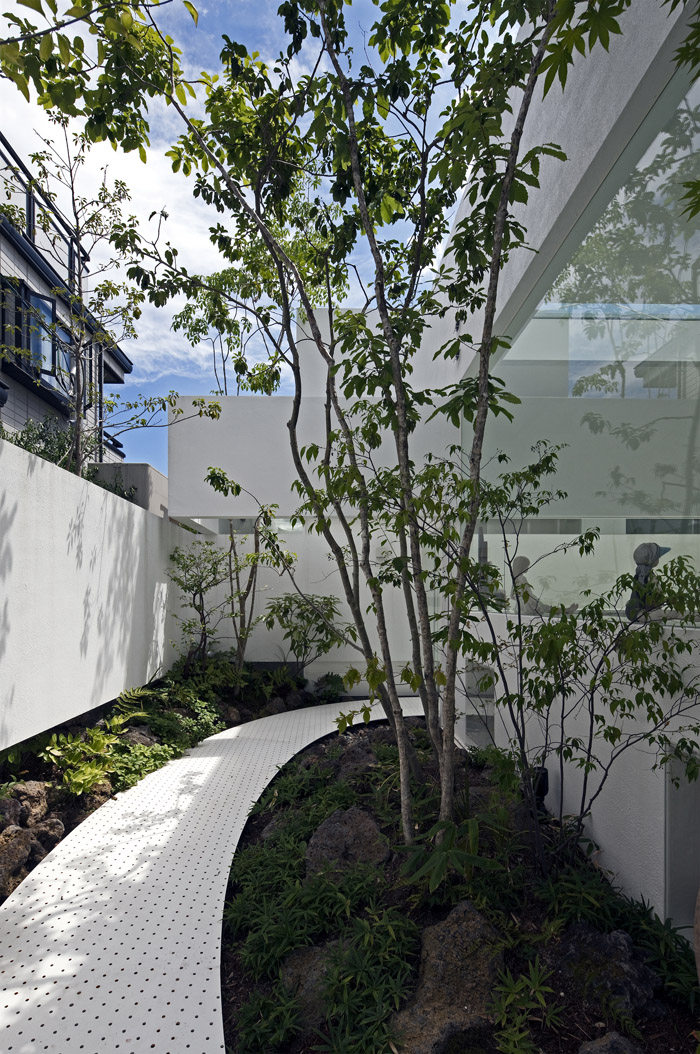
Requests and Characteristics of the Site
This is an atelier for a doll artist and a residence of the couple. The request was an
atelier that can be used as a gallery at the same time functioning as a doll-making
studio. Additionally, it should be a space where her friends, who are often invited, can
be gathered around pleasantly. In the residential environment the atelier and the house
are wished to be open, while reserving some privacy from the neighborhood.
When I first visited Minoh City in Osaka Prefecture, I remember the place was plenty of
green. It is because the season was spring, but also the city was ordained by
vegetation standard, which order more than 10% of the site to plant tall, middle and low
trees in urban districts with lower than 60% of building coverage ratio.
Form without Territory
In order to secure privacy, we through if it is possible to do so with more people’s
involvement rather than building walls or fences on site boundaries and capturing the
whole from inside.
That is to create the whole from outside by choosing the neighbor’s greenery as
outdoor space and not producing necessary functions from inside. Not something like
walls, hanging walls or fences but waist-high walls that are freed from gravity or floating
belts surround the entire site. This is a theory to create architecture that is interior-like
extending from outdoor, opposed to substantial in/out territory.
Floating Belt
Specifically, we expected that territory, which dose not regulate in/out terrain, be made
by a spatial diversity that is derived from floating belt, which is accumulated double or
triple in rectangle taking balance, and the belt itself.
Employing 1.2 m level the difference in the site, two functions are allocated to where
floating belts overlap. Atelier is put on the lower part facing north-looking front street
and the residential piece on the upper south side. An approach was built as a slope as
if walking on the slanted topography. By putting a small box that stores necessary
functions such as a closet in the atelier and the house, it becomes a space like a street-
facing piazza that has no region. The two functions become one room space by triple
pile of belts.
A simple operation of overlapping belts that have directionality obscures site
boundaries and formulates a relationship of the site and the neighborhood that contain
new extent.
That is to say, the entire site becomes a gallery without body-sensed territory and that
is connected to creating variety of places that the client requires.
In this occasion, we think we could realize a space that has new link to a city by
rethinking notion of walls and fences that obstruct boundaries and treating architecture,
structure and landscape equivalently.


Name project ATELIER-BISQUE DOLL Architects … UID – Keisuke Maeda
Consultants … Konishi Structural Engineers – Yasutaka Konishi
Takeshi Kaneko,structural; K-style – Kousou Katayama,mechanical;
Toshiya Ogino Environment Design Office –
Toshiya Ogino,landscape
Yamato design – Makoto Ouchi,logotype design
General contractor …Seiyu Kensetsu – Yukihiko Nishida ,Mitsuhiro Matsumura
Structural system …steel frame
Used materials …mortal,exterior ; mortal,plaster board, interior
Site area …328.16 .0㎡
Built area …151.25 .0㎡
Total floor area …151.25 .0㎡
Date of completion …November, 2009
Location …Minoh, Osaka, Japan
All images …© Hiroshi Ueda


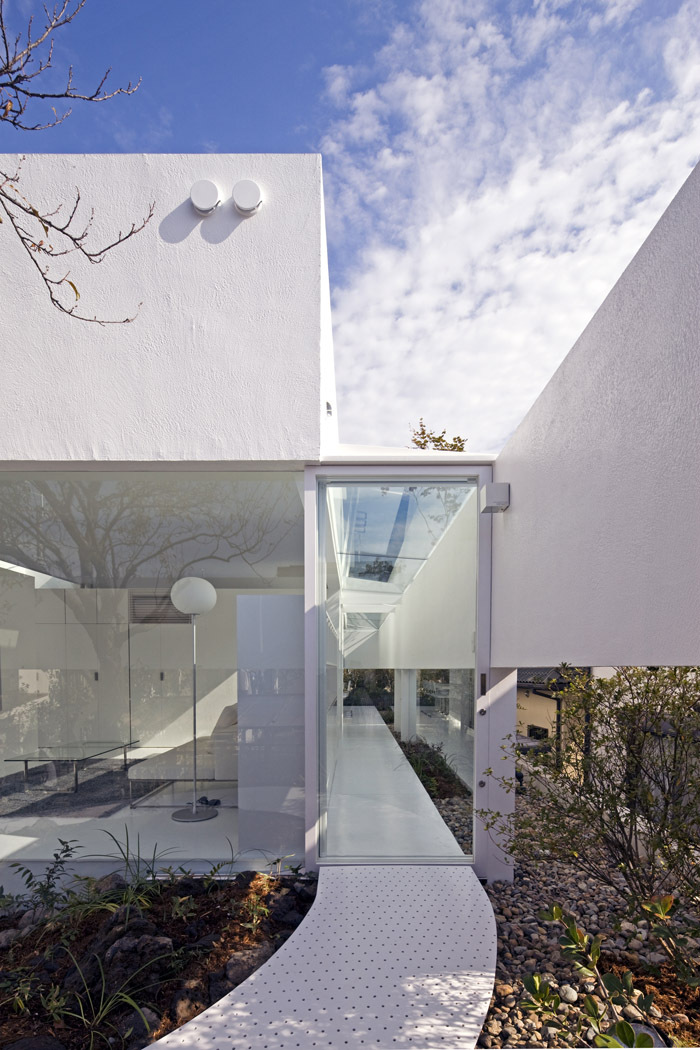
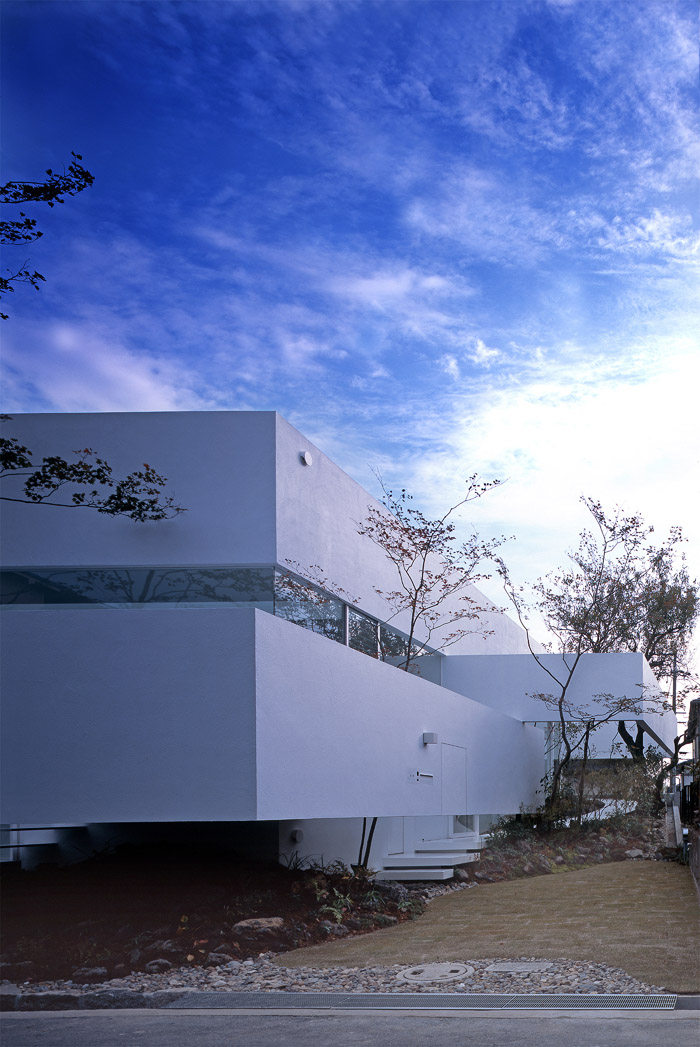
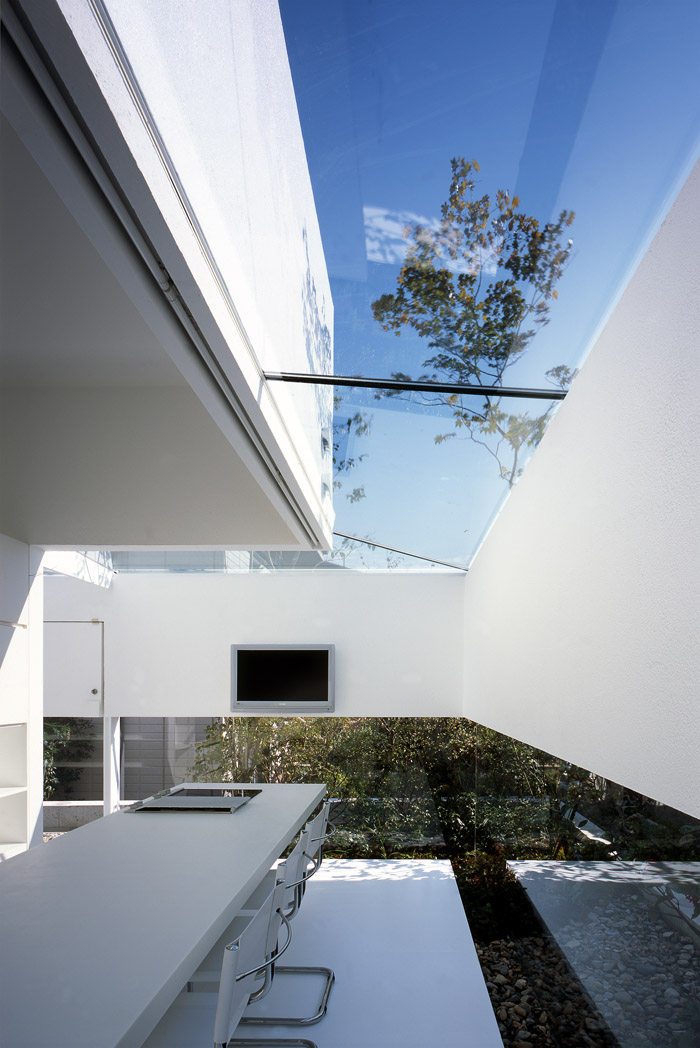
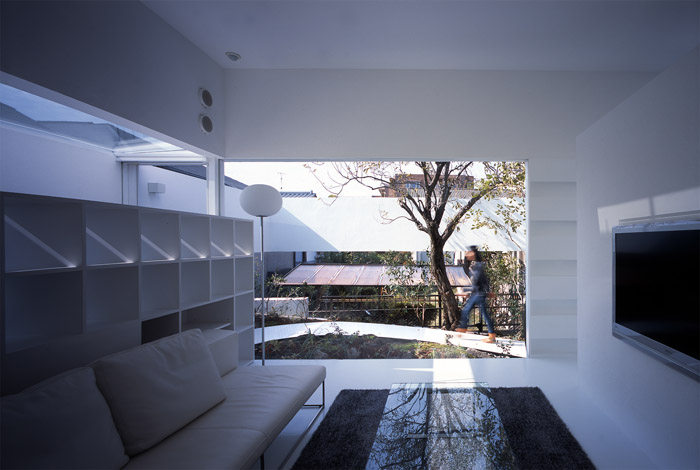

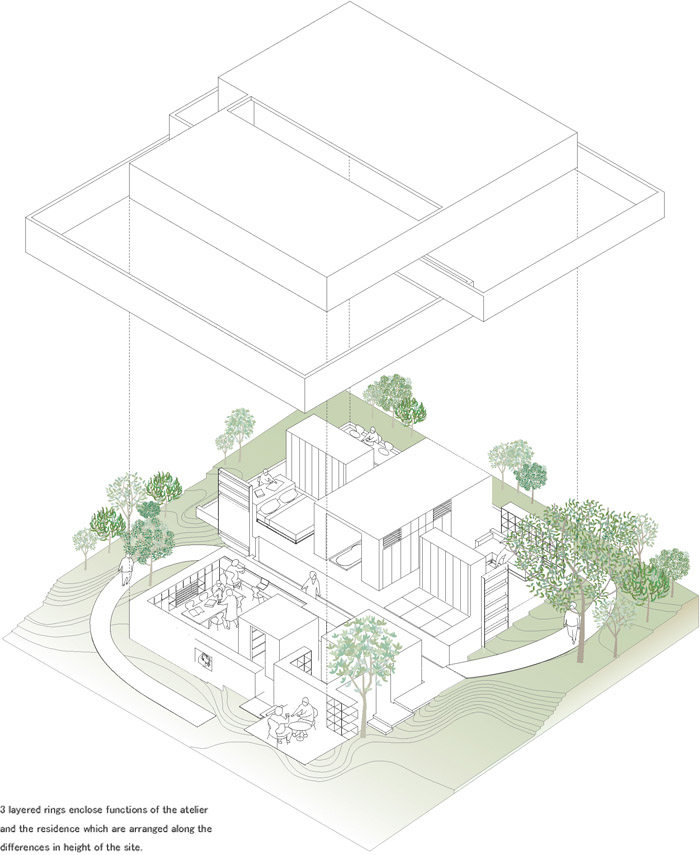
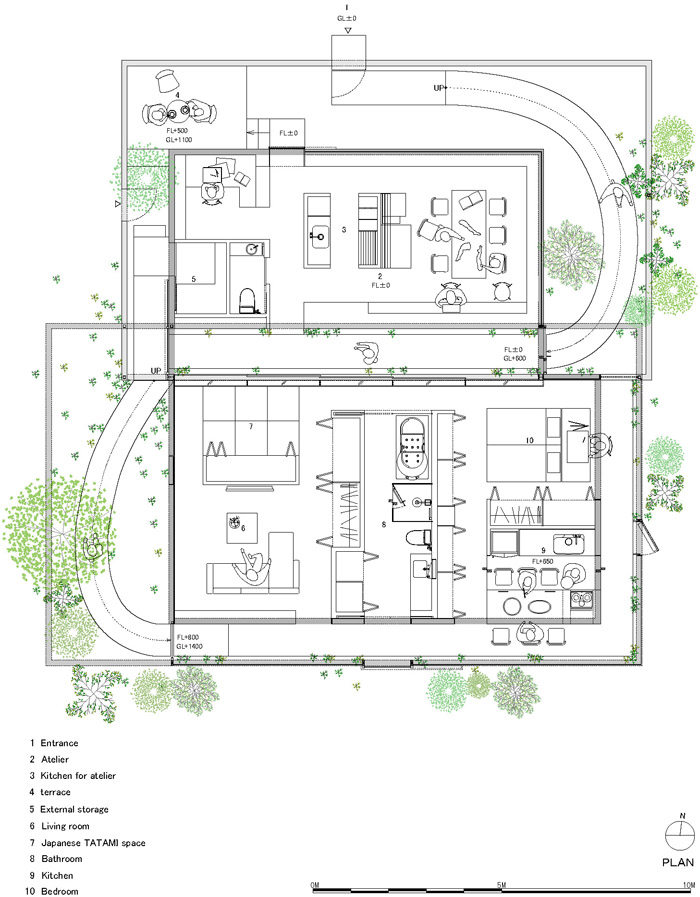

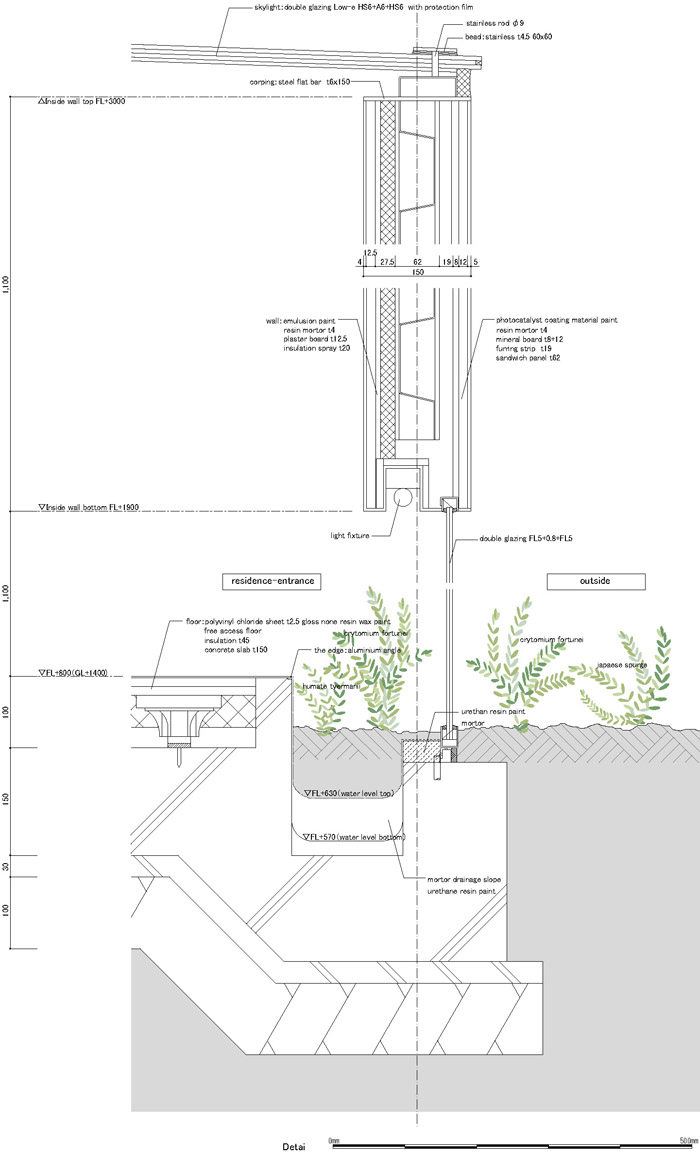
|

 发表于 2012-11-14 21:49:02
发表于 2012-11-14 21:49:02




























